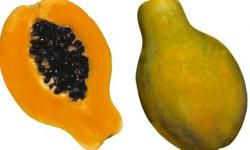Understanding Belching
Belching isn't a big deal; it's not even a medical condition, most of the time. It's simply the result of swallowing air. But the air that goes down has to go somewhere, so most of the time it leaves the same way it came in--through the mouth. We all burp, or belch--it actually serves a purpose. It removes gas from the stomach by forcing it up into the esophagus and then out your mouth. Without this escape device, we'd blow up like one of those big balloons in the Macy's Thanksgiving Day parade, not to mention the sharp cramps we'd feel running all the way from our stomach to our throats. So belching is a good thing. And no matter how many goods ones we let out during the course of a day, the swallowed air that turns into a belch is only a tiny fraction of the intestinal gas that we all have.
Medically, belching is called eructation; the definition from Taber's Encyclopedic Medical Dictionary is "Producing gas from the stomach, usually with a characteristic sound." In many Eastern cultures, that characteristic sound is accepted as an appreciative expression of a good meal. In Western society, however, no matter how good the meal was, eructation is not acceptable. Bottom line: We try not to belch in public.
Advertisement
To reduce belching, you need to reduce the amount of air you swallow. The home remedies in this article will help you do just that.
This information is solely for informational purposes. IT IS NOT INTENDED TO PROVIDE MEDICAL ADVICE. Neither the Editors of Consumer Guide (R), Publications International, Ltd., the author nor publisher take responsibility for any possible consequences from any treatment, procedure, exercise, dietary modification, action or application of medication which results from reading or following the information contained in this information. The publication of this information does not constitute the practice of medicine, and this information does not replace the advice of your physician or other health care provider. Before undertaking any course of treatment, the reader must seek the advice of their physician or other health care provider.
Advertisement
